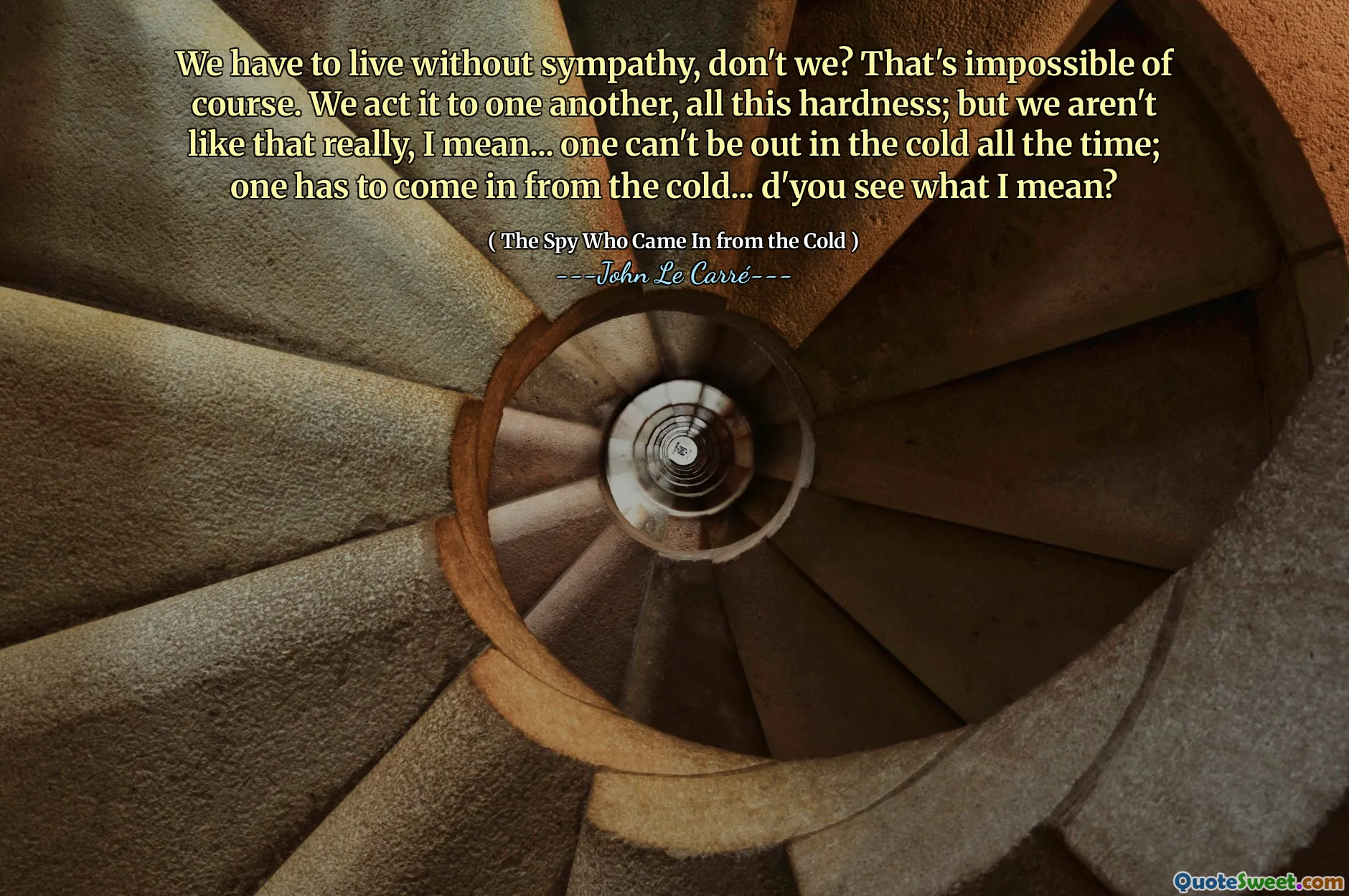
We have to live without sympathy, don't we? That's impossible of course. We act it to one another, all this hardness; but we aren't like that really, I mean... one can't be out in the cold all the time; one has to come in from the cold... d'you see what I mean?
This quote delves into the complex interplay between external appearances and internal emotions, highlighting the masks people wear in their interactions. The notion of living without sympathy suggests an environment or mindset where genuine emotional understanding is suppressed or absent, perhaps as a form of self-preservation or societal expectation. Yet, the speaker acknowledges that such a state is ultimately unsustainable — humans are inherently not meant to be cold or detached entirely. The analogy of being in the cold and needing to come in from it mirrors the human need for warmth, comfort, and connection, even when we find ourselves guarded or distant.
In much of life, especially within societal or political spheres, there's a tension between authenticity and performance. People often act tough, indifferent, or detached to protect themselves from vulnerability or to project strength, but underneath this exterior, the desire for empathy, understanding, and warmth persists. The quote subtly suggests that beneath these layers of superficial hardness, everyone shares an intrinsic need for kindness and connection. It reflects on the human condition — our inability to sustain emotional barriers forever without consequences.
By referencing coming in from the cold, there's an acknowledgment that true strength may lie in allowing oneself to be vulnerable, to accept that human warmth and compassion are essential for genuine interaction. This idea resonates deeply because it touches on the universal truth that no matter how guarded we become, our core nature still seeks warmth and genuine connection. It serves as a reminder that the societal facades we put up are temporary and that authenticity, or at least acknowledgment of our shared vulnerabilities, is essential for meaningful human relationships. This quote, from "The Spy Who Came in from the Cold," captures the nuanced understanding of human hypocrisy, the need for empathy, and inherent yearning for connection amid outward emotional concealment.





